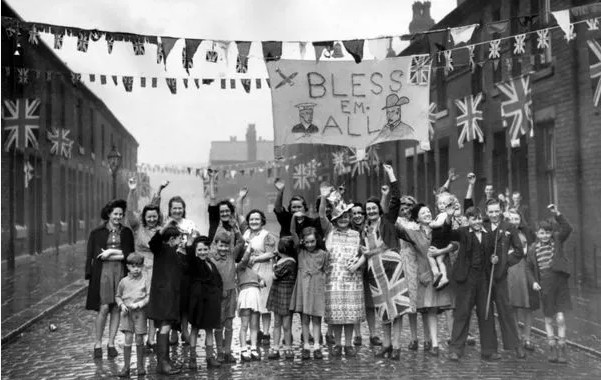Reminder: It Wasn’t Just Britain That Fought in WWII — It Was the British Empire
Posted on May 5, 2025
Every so often, especially around Remembrance events or certain political anniversaries, you’ll hear the nostalgic murmurings: “Britain stood alone against Hitler.” The image evoked is romantic—stiff upper lips, cups of tea in air raid shelters, Churchill growling defiance into a wireless set. Stirring stuff. But it’s also, well… not quite the full picture.
Let’s clear something up: Great Britain did not win the Second World War on its own. In fact, it didn’t even fight it on its own. The war was waged by the British Empire—that vast collection of territories, dominions, and colonies conveniently overlooked whenever the victory medals are being polished.
The Not-So-Small Matter of an Empire
When Britain declared war on Germany in 1939, so did the rest of the Empire. That was one of the perks—or burdens, depending on your perspective—of being part of a global imperial system. You didn’t get a vote, but you were certainly expected to show up when the guns started firing.
India, still under British rule, sent over 2.5 million volunteers—the largest volunteer force in history. These men fought from the deserts of North Africa to the jungles of Burma. Many were promised independence, or at the very least some thanks. Double-crossed, they didn’t get either, at least not immediately.
From Africa, tens of thousands were conscripted or “encouraged” (sometimes with bayonets) to serve. Nigeria, Ghana (then the Gold Coast), Kenya, Sierra Leone, and more provided soldiers, porters, and labourers. They often fought in brutal conditions for less pay and fewer rights than their British counterparts. But they’re usually left out of the war films—perhaps they didn’t fit the casting call.
The Caribbean islands sent men and women to serve in the RAF, Royal Navy, and auxiliary units. They helped defend Britain while being treated, at times, with the kind of hospitality one reserves for distant relatives you hope won’t stay long.
Canada, Australia, New Zealand, and South Africa—the dominions—declared war independently and contributed mightily in both men and matériel. Canadians stormed the beaches of Normandy, Australians held the line at Tobruk and fought the Japanese in the Pacific, and New Zealanders served with distinction in Crete and North Africa. Britain often thanks them by pretending they were just really enthusiastic tourists with rifles.
And Then There Were Allies
Let’s not forget the brave soldiers from Poland, who escaped occupation only to keep fighting in exile. They flew in the RAF during the Battle of Britain (remember the and were instrumental in several key battles. Then there were the Free French, the Czechoslovaks, the Belgians, and many more. Even Irish volunteers from neutral Ireland crossed the sea to enlist—because fascism, it turns out, wasn’t a matter of borders.
The Myth of the Lone Bulldog
Now, no one’s saying Britain didn’t play a pivotal role. Of course it did. But the popular fantasy that Britain “stood alone” and single-handedly defeated the Nazis is like claiming the conductor won the orchestra’s applause all with his own work. It’s convenient, tidy, and vaguely patriotic—but wildly inaccurate.
This isn’t about guilt or undermining courage. It’s about credit—shared credit—and historical truth. The war effort was multicultural, multinational, and far more complex than the Union Jack-draped versions sometimes passed down.
Time to Widen the Lens
So the next time someone waxes lyrical about how “Britain saved the world,” maybe remind them—gently, or not—that the world also helped save Britain. From Indian sepoys to West African riflemen, Caribbean airmen to Anzacs in the trenches, the war was won by a cast much broader than the script usually admits.
Let’s remember all of them. Not because it’s politically correct, but because it’s historically correct. And frankly, they earned it.

Norman House
May 6, 2025 (8:53 am)
There you go Bob, letting facts get in the way of jingoistic nationalism. It will never catch on 😉
Seriously, it’s a very good summary. Of course it doesn’t mention our American friends who think they deserve credit for winning the war – even more than old Blighty.